Non-Verbal Reasoning Tests: Example Questions & Tips (2025)
Updated November 6, 2024
What Are Non-Verbal Reasoning Tests?
Non-verbal reasoning tests are a category title, rather than a single test. The term refers to the following different tests, among others:
Non-verbal reasoning tests are designed to measure an individual’s ability to problem-solve and analyze visual information, such as diagrams and patterns.
They do not rely on technical or industry knowledge, language or mathematical skills, but simply an individual’s reasoning capability and, it could be argued, intelligence.
When Can You Expect to Take a Non-Verbal Reasoning Test?
Employers, universities and schools use non-verbal reasoning tests in their application processes.
This type of test stands alone; it is not something that can be studied for, and therefore it provides companies and institutions with a true picture of an individual’s abstract thinking ability.
Prepare for Any Job Assessment Test with JobTestPrep
Questions in a non-verbal reasoning test are presented visually, asking the candidate to make sense of a diagram or a pattern, and solve the problem using logic.
These tests are most popular in technical industries where logic, problem-solving and strategy are essential skills – such as engineering, IT or in the military.
However, given the power the tests have in exposing an individual’s true, raw ability, they are growing in popularity throughout many different sectors.
Inductive reasoning tests, for example, measure an individual’s ability to be flexible when faced with unfamiliar information and come up with solutions.
This type of test is useful to organizations in a wide range of different industries; especially ones that require adaptable individuals who are motivated to find a solution to a problem.
Prepare for Any Job Assessment Test with JobTestPrep
What Format Do Non-Verbal Reasoning Tests Normally Take?
The types of questions you might find in a non-verbal reasoning test include:
- Finding the missing item by working out a pattern of logic in a matrix-style diagram
- Establishing a set of rules from a sequence of inputs and outputs in a diagram, then applying those rules to a new sequence where information is missing
- Looking at shapes or patterns and deciphering what comes next
- Visualizing a 3D shape or working with mirror images/reflections
- Working out cube nets or what shapes will look like when folded
Some employers use paper tests, whilst others opt for online versions.
There are often more questions than most people could complete within the given time; the tests are all about assessing an individual’s accuracy and speed.
Examples of Non-Verbal Reasoning Tests
Below are three non-verbal reasoning examples. Below each question is an answer and an explanation.
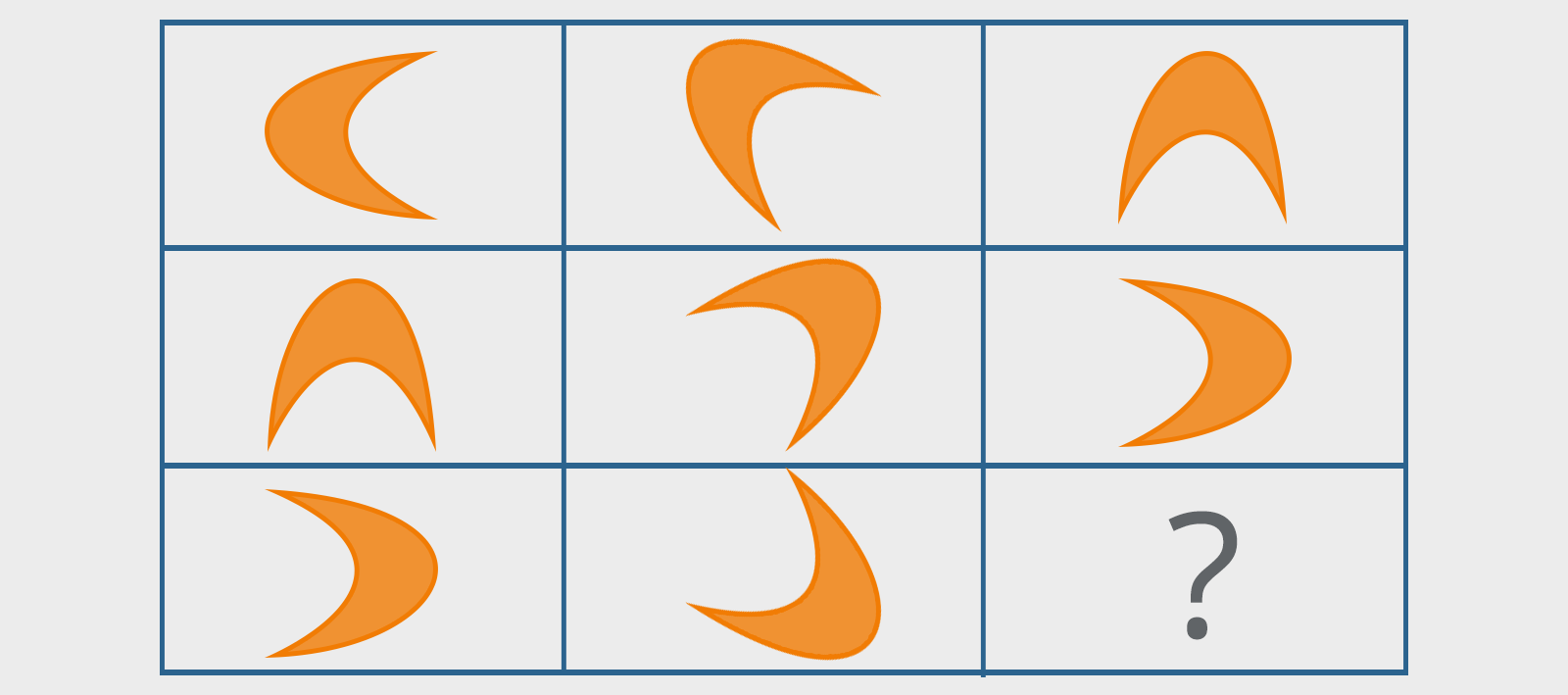

Which shape completes the grid?
If you need to prepare for a number of different employment tests and want to outsmart the competition, choose a Premium Membership from JobTestPrep.
You will get access to three PrepPacks of your choice, from a database that covers all the major test providers and employers and tailored profession packs.
Prepare for Any Job Assessment Test with JobTestPrep
Rules:
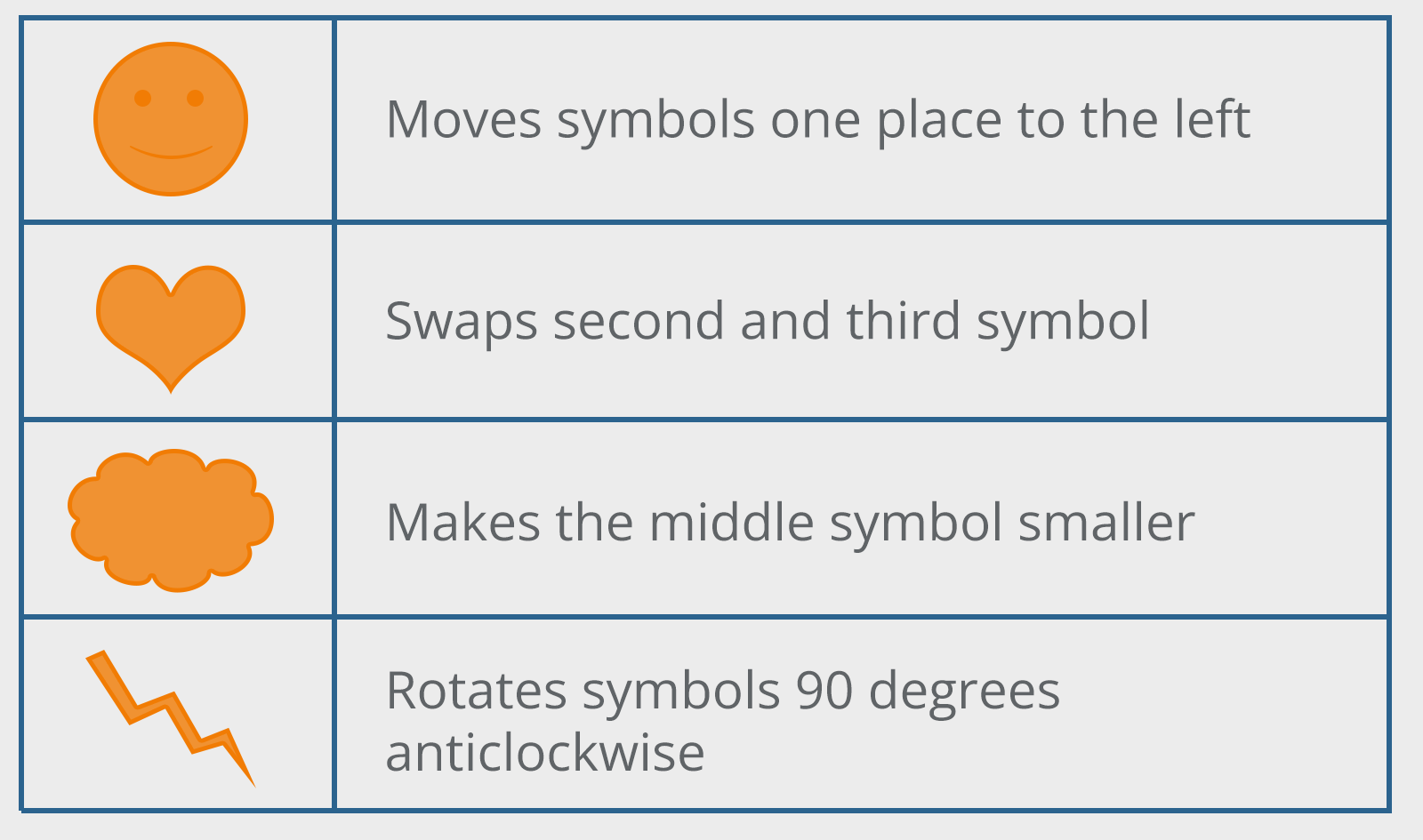
Question Detail:
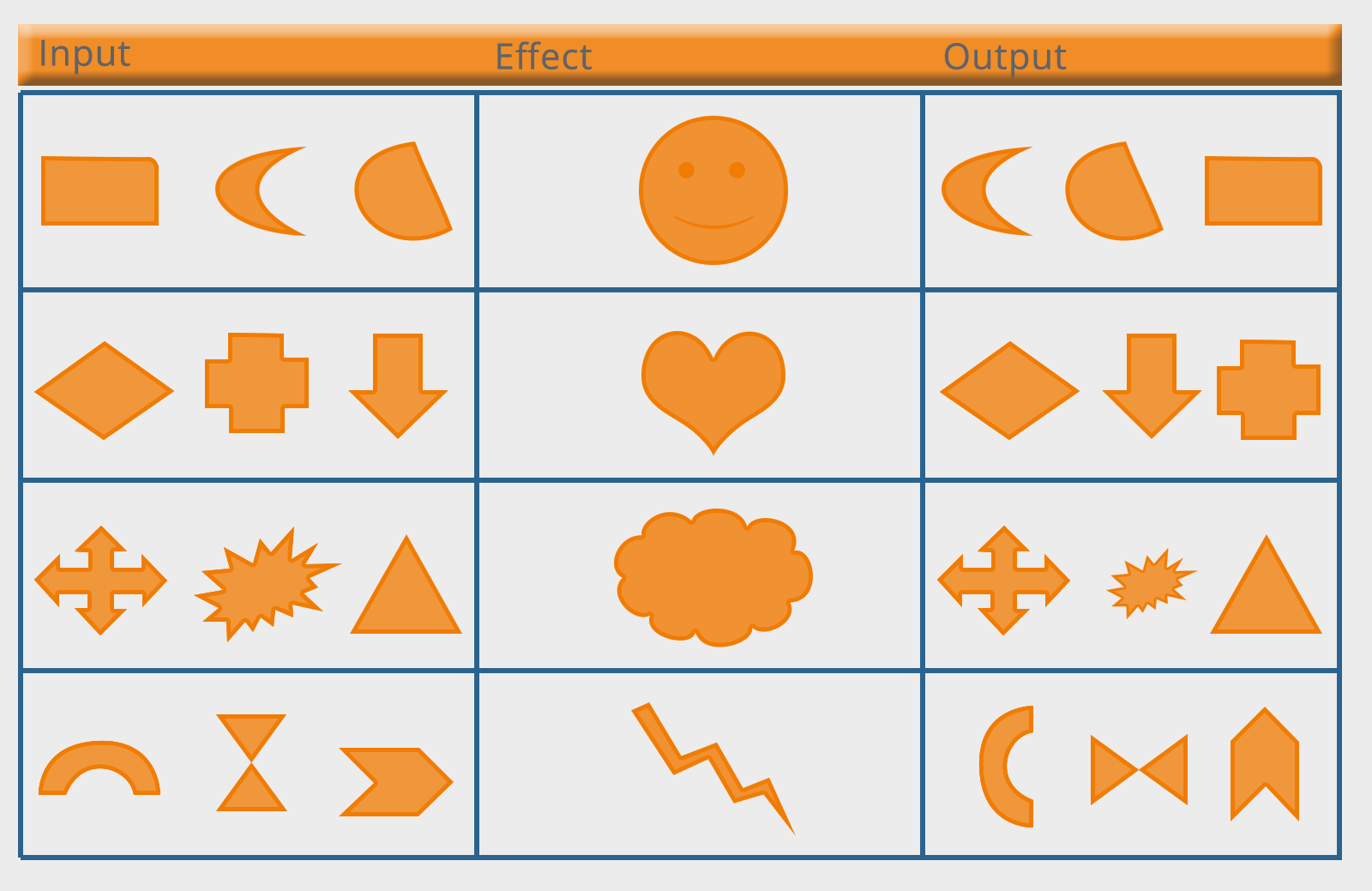
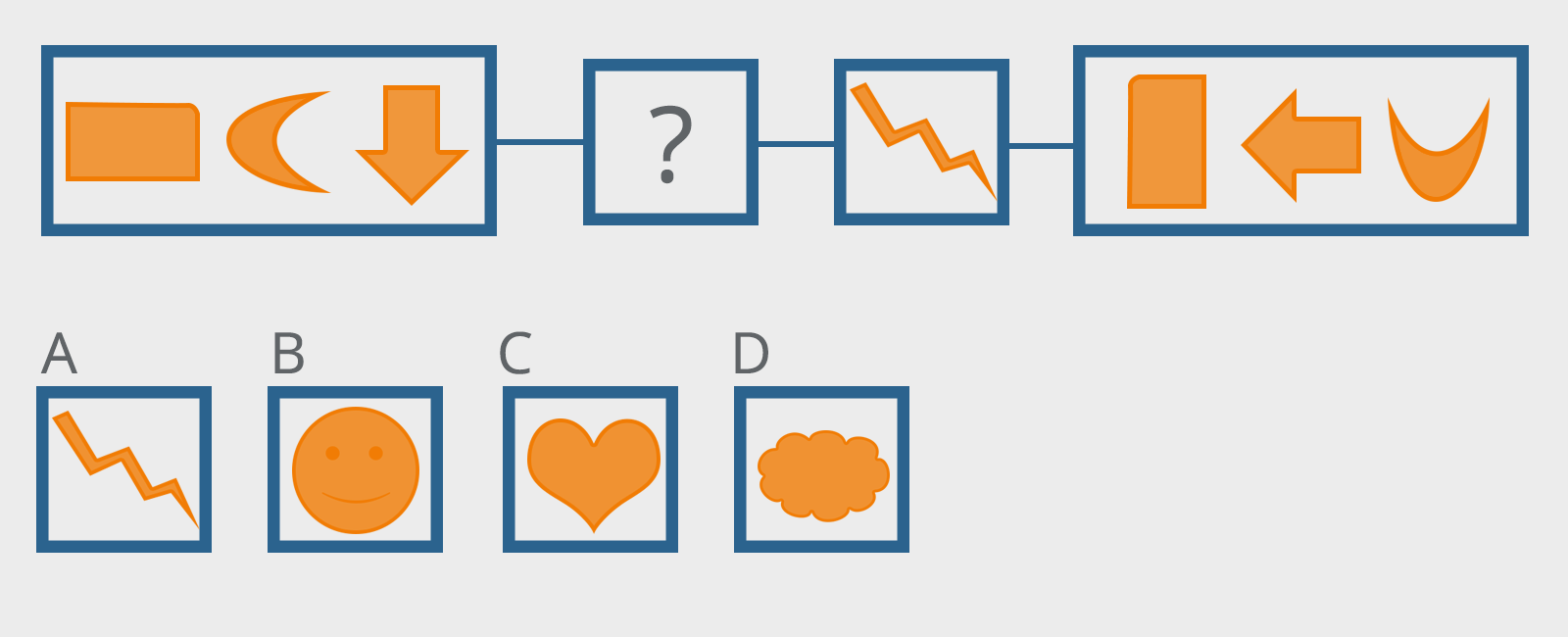
Which shape replaces the question mark?
Prepare for Any Job Assessment Test with JobTestPrep
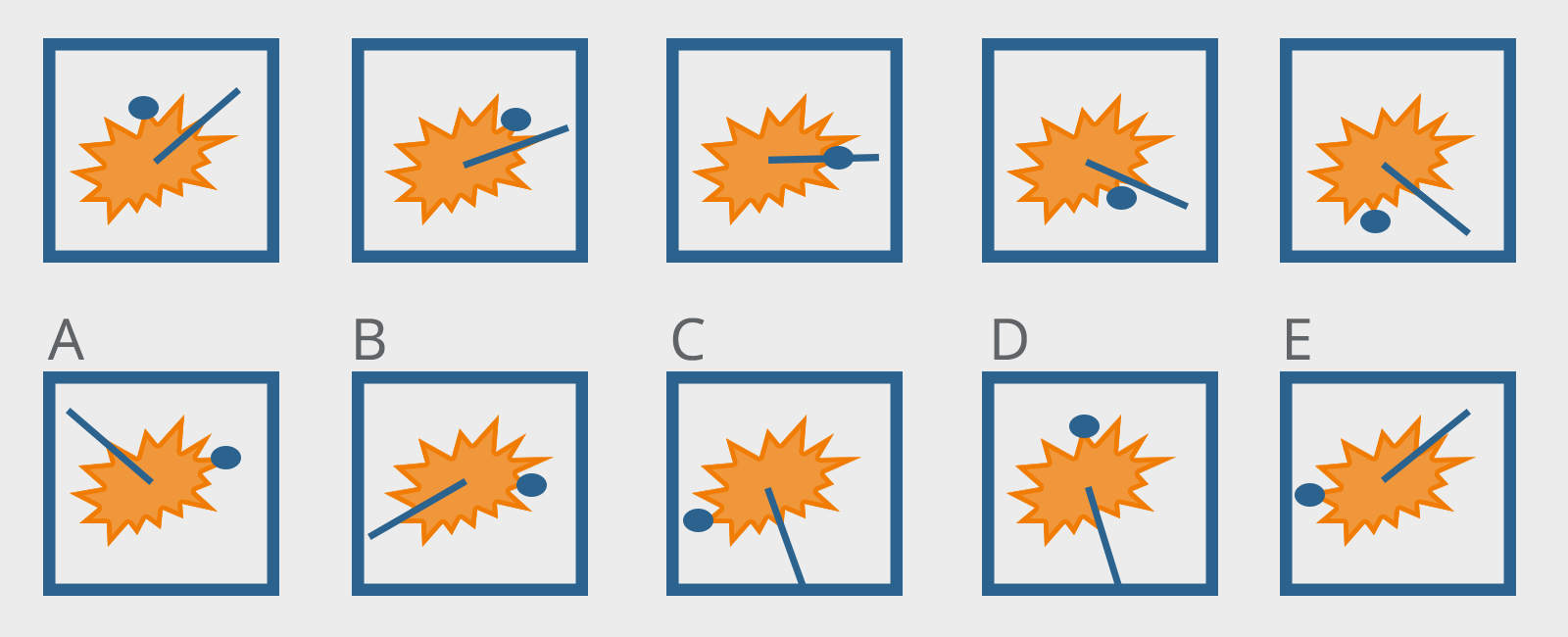
Identify the next box in the sequence.
How to Pass Non-Verbal Reasoning Tests in 2025
These types of tests are valued because they cancel out the need for existing knowledge.
Whilst it is not possible to revise for the tests, there is preparation you can do.
A crucial element of preparation for a non-verbal reasoning test is to familiarise yourself with the format.
At first glance, a test of this kind can be extremely daunting; it’s easy for panic to set in, which is not conducive to logical thinking.
By looking at the types of questions you will be faced with, you will become more comfortable with the format and be able to think clearly when under pressure.
Working through practice tests can help condition your brain to the question types and enable you to get to an answer quicker.
Some other tips:
- Practice your accuracy and the art of checking back through your work for errors or misread questions.
- Don’t be afraid to draw the shapes and experiment on paper before writing your answer – you might be provided with a piece of rough paper and a pencil, but if not, ask.
- Pay attention to details and read the question carefully.
- Be mindful of time; work as quickly as you can but without sacrificing your accuracy. Take note of any time limits the test has.
- Practice working methodically; apply each rule in isolation rather than trying to tackle more than one rule at once.
Prepare for Any Job Assessment Test with JobTestPrep
Summary
Non-verbal reasoning tests offer an employer or institution a window into the mind of an individual.
A simple test can reveal how effective the person is at problem-solving, whether they can work methodically, how well they cope with visual information and the speed at which they can find solutions.
These types of tests are growing in popularity across all industries, because of their value to organizations.
An employer can ask the question, “Do you consider yourself to be proficient at problem-solving?”, and you can have a perfectly crafted response detailing your abilities.
Yet is only when they put a problem in front of you and ask you to solve it, that they truly know your capabilities.






